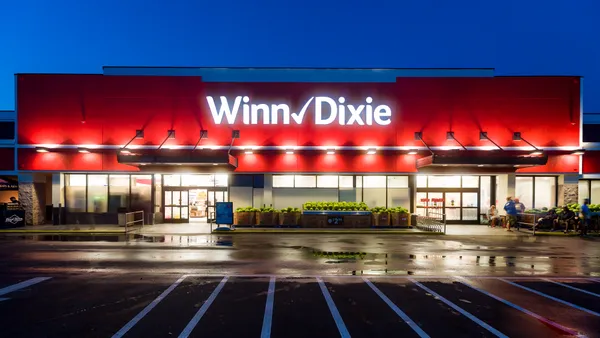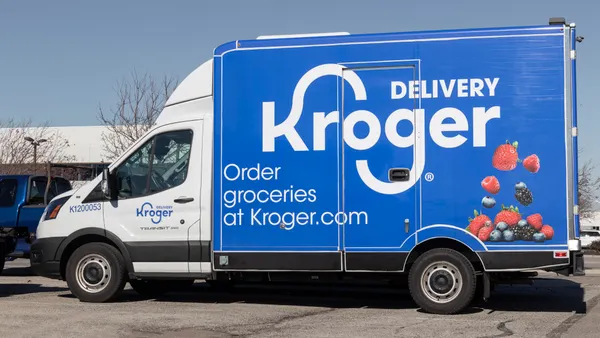Dive Brief:
- Imperfect, a company that aims to reduce food waste by finding a place for “ugly” produce, announced it will expand to the East Coast and open a new distribution center in the Baltimore area, according to a company press release. The expansion is being partially funded with an investment from Thirty Five Ventures, which is owned by NBA star Kevin Durant.
- The produce company was launched in 2015 and has since grown to 11 cities across the West Coast, Midwest, Pacific Northwest, and Southwest. In addition to its new center in Baltimore, which will add hundreds of jobs to the local economy, Imperfect plans to expand to all major metro areas on the East Coast by 2020.
- Despite Imperfect’s continued growth, the ugly produce category is not necessarily on solid footing among shoppers. Recently, the Albany Business Review found that Price Chopper and Hannaford discontinued selling products from the ugly produce brand Misfits after trials in upstate New York.
Dive Insight:
While axing Misfits from store shelves may not directly affect Imperfect, the moves from Price Chopper and Hannaford are a blow to the ugly produce category as a whole. The grocery stores cited a lack of interest among consumers and inconsistency of quality as the reasons for cutting the produce line, which indicates that they may not carry ugly produce from any company. However, Hy-Vee and Meijer are still carrying Misfits products, so the success of ugly produce may simply be a matter of geography and shopper demographics and preferences.
Imperfect is likely to find continued success with its unique approach. Imperfect is a home delivery service model, and customers pick the contents of their box to fit their tastes and preferences. This gives shoppers a little more control over what they choose, while an ugly produce selection in grocery stores may limit variety and choice for consumers. Imperfect gets its produce directly from farms and says it is more cost-effective than traditional grocery stores.
Notably, Imperfect conducted a pilot program to place its produce in Whole Foods stores around the San Francisco Bay Area in 2016, though it does not appear to be partnering with any other grocery stores at this point.
The biggest hurdle for the ugly produce industry is consumer perception. Many people will assume that calling it imperfect means poor quality or bad taste — and they are less likely to even consider purchasing this type of product. This makes it a bit of a risk for grocers to carry ugly produce, which could be why Hannaford and Price Chopper discontinued their programs. If customers detect low quality or lack of freshness in a produce offering, that can affect the way they think about the store as a whole.
However, shoppers who are out for a bargain, or who care about reducing food waste and understand that “different” doesn’t mean “bad” in produce, are likely to embrace the opportunity to shop ugly produce. If the quality holds up, it should not be hard for stores to build a loyal customer base for it.
As part of its Zero Hunger Zero Waste initiative, Kroger announced it will launch its own ugly produce program called Pickuliar Picks next year. Because Kroger has such a strong reputation among its customers, and the grocer is maintaining quality control by managing the program itself, it’s likely that many shoppers will respond well to the offering.
In addition to existing grocery store partnerships and programs, a variety of ugly produce companies are gaining traction in the space. Imperfect will need to keep a close eye on these other players even as it moves toward national success.










